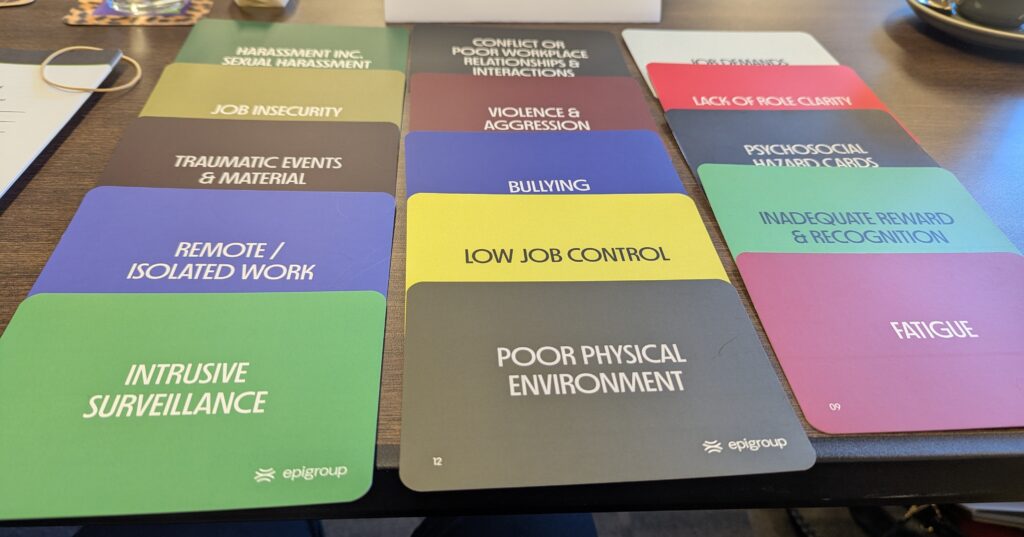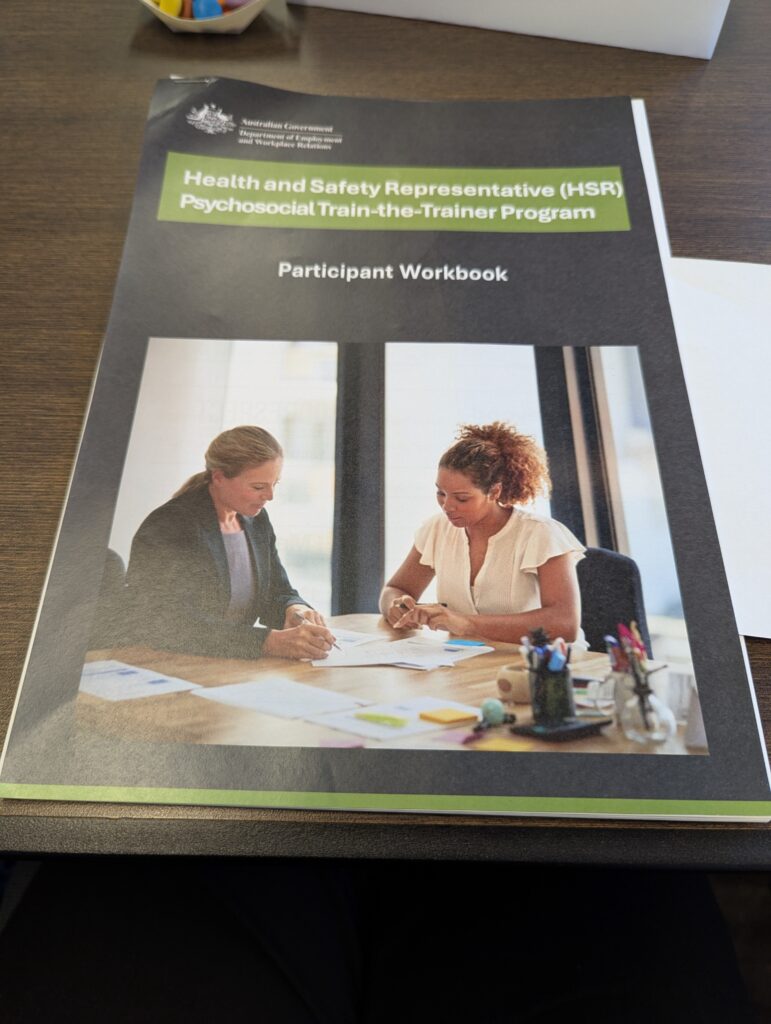Recently, I had the opportunity to attend the Health and Safety Representative (HSR) Psychosocial Train the Trainer course. This article adds to my previous post which provided general information about psychosocial hazard management. This blog shares some key insights from the program that are particularly pertinent to HSRs.
Before I start, what does the law say about the management of psychosocial hazards?
Legislative Requirements
PCBUs (person conducting a business or undertaking) must, under their primary duty, ensure the health and safety of their workers. Health includes not just physical health but also psychological health.
The WHS General Regulations and WHS Mines Regulations also include specific provisions in relation to the management of psychosocial hazards. They state that the PCBU must manage psychosocial hazards and implement controls.

Ground Rules for Risk Management
HSRs play a vital part in creating healthy and safe workplaces. When dealing with any hazard or risk, there are three key principles to guide your response:
- Prevent harm before it occurs
- Prevent further harm if something has already happened
- Improve health and safety outcomes for everyone involved
These goals sit at the heart of risk management and give HSRs a compass when navigating complex concerns.
The HSR’s Role
Section 68 of the WHS Act outlines HSR powers and responsibilities—many of which are essential when dealing with psychosocial risks. A HSRs role may include:
- Raising general concerns and identifying patterns
- Monitoring how the PCBU responds to issues raised
- Investigating complaints and preserving confidentiality
- De-identifying sensitive information
- Escalating issues through agreed pathways
- Referring workers to support services
- Promoting wellbeing initiatives
Keep in mind: while you can report trends or serious and imminent risks, individual workers should lodge their own concerns.
Let’s Talk About Psychosocial Hazards
Encouraging open conversations is one of the best ways HSRs can prevent harm. Starting that dialogue might feel daunting, but here are a few tips for HSRs:
- Use your consultation forums (toolbox talks, committee meetings etc.) to raise general awareness about psychosocial hazards
- Promote Employee Assistance Programmes (EAP) and other support services
- Make sure your work group understands the HSR role—it’s voluntary, and you’re not there to fix problems
- Clarify your position in the issue resolution process
- Use a simple disclaimer: “If you disclose something, I’ll need to act on it.”
- Help workers understand the steps they should take to report and seek support
Be clear about what you’ll need to do in response if someone discloses to you and there is serious and imminent risk.
What HSRs Can and Can’t Do
Here’s a quick breakdown to help staying within professional boundaries:
You can:
- Encourage reporting
- Attend interviews in a supportive role
- Ask questions to understand risks and controls
- Monitor the PCBU’s efforts in managing risks
- Raise concerns constructively
You must not:
- Access confidential details without consent of the involved person
- Offer counselling or support beyond your expertise
Keeping Professional Boundaries Intact
Maintaining boundaries isn’t just good practice, it protects credibility and keeps things safe for everyone involved. A few ground rules:
- Remain objective and define your role clearly
- Don’t get involved outside the scope of your work group
- Avoid sharing personal stories or gossip
- Watch for signs of emotional entanglement, like worrying after hours or focussing too heavily on one issue
Keeping professional boundaries not only protects you from mental stress but prevents potential disciplinary risks and ensures you’re advocating effectively and not overreaching.
Common Dilemmas
Psychosocial safety often comes with tough moments. You may face:
- Conflicts between confidentiality and reporting
- Cultural sensitivity versus safety concerns
- Fear of retaliation when whistleblowing
- Competing workplace priorities
- Situations involving worker misconduct
If you’re unsure, lean into consultation and seek advice, it’s not about having all the answers, but navigating with integrity.
Making an Impact
HSRs have a powerful influence on culture. When it comes to psychosocial safety, your contribution might include:
- Spotting and reporting emerging risks
- Participating in psychosocial risk assessments
- Monitoring how interventions are working
- Modelling respectful behaviours
- Keeping the PCBU accountable under the Act
The ripple effect of your work can be immense, not just in resolving hazards, but in fostering workplaces where everyone feels safe, heard, and supported.
Supporting psychosocial safety isn’t just about policy, it’s about people. HSRs are in a unique position to drive change through conversations, compassion, and consistent action. Influence doesn’t come from authority alone, it comes from credibility, collaboration, and clarity of purpose. When we hold our boundaries, stay informed, and keep the wellbeing of our work group at the centre, we help shape safer, healthier workplaces, one step at a time.

